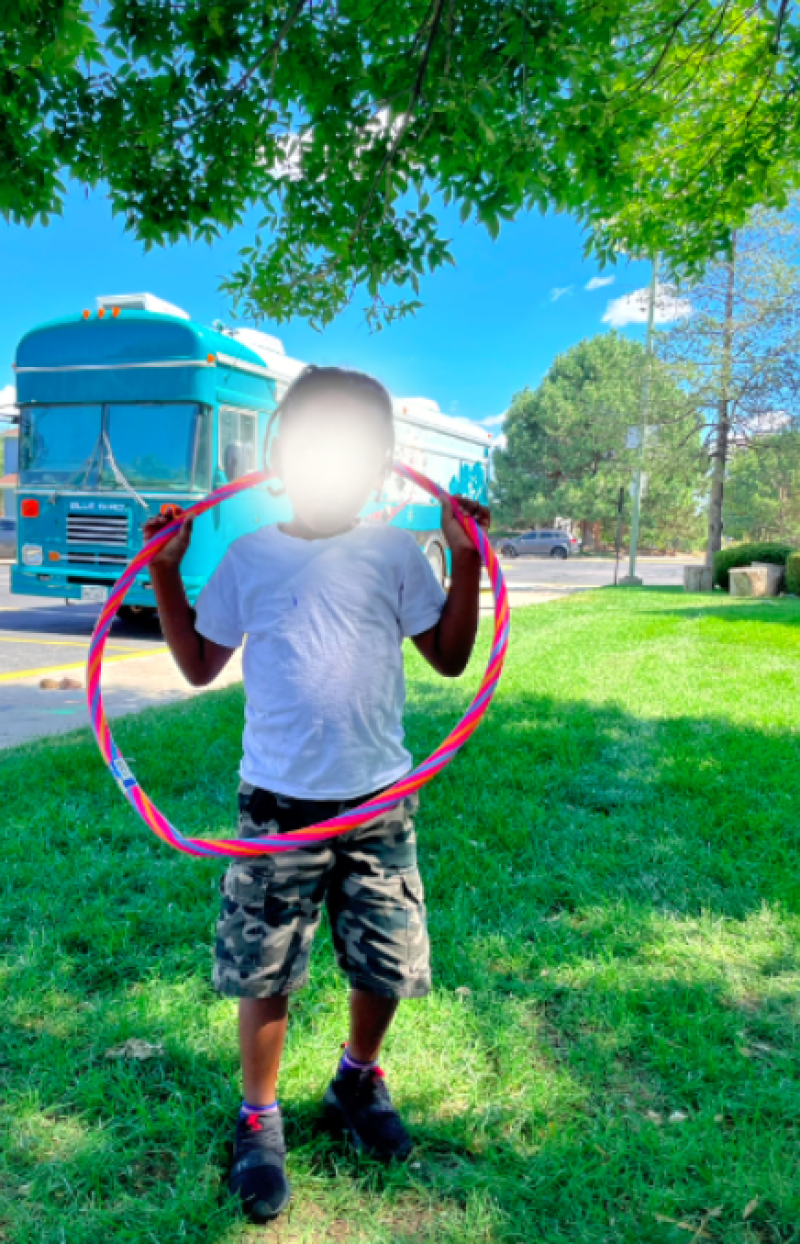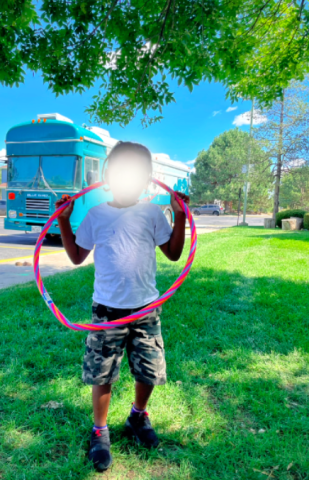Graduate Community of Practice Reflection
By: Kristopher Tetzlaff, PhD Visiting Teaching Assistant Professor | Center for World Languages and Cultures University of Denver

I had the privilege of participating in the 2023-2024 CCESL Graduate Community of Practice. CCESL has been instrumental in helping to advance my community-engaged research endeavors with my community partner, You be You Early Learning–Colorado’s first and only nonprofit mobile preschool and teacher-led cooperative. In 2022, I was awarded an ACE Student Scholar grant which enabled me to co-create a research-based photovoice protocol predicated on community knowledge and in partnership with preschool staff. This impactful work was made possible, in part, by the unwavering support of staff and compelled me to participate in subsequent CCESL-sanctioned opportunities and events.
The CCESL Graduate Community of Practice afforded all participants ample opportunities to engage in reciprocal teaching and learning vis-à-vis a diverse array of student-generated topics that intersect with community-engaged research. I found our critical discussions centered on ethics, research methods, capacity building, and challenges relevant, practicable, and illuminating. Although we met just twice per quarter, our discussions enabled us to consider community-engaged approaches to research through diverse lenses (i.e. curriculum and instruction, counseling psychology, higher education, etc.).
Participating in this year’s cohort indubitably helped to inform and guide my dissertation research. Ultimately, our discussion regarding ethical considerations inspired me to seek extant evidence-based conceptual frameworks to guide my community-based participatory research initiative, specifically with young children of historically marginalized communities. I elected to integrate and operationalize the Three Rs framework in order to enact a relational, rights-informed approach in my research practice (Truscott et al., 2019). To elucidate,
the Three Rs conceptual framework is intended as a tool for ethical decision-making, encouraging researchers and other stakeholders to reflexively consider both children’s rights and the relational context in an effort to identify the ‘best right choice’– that [is] likely to cause least harm. (Truscott et al., 2019, p. 26)
The first of the three Rs signifies reflexivity. Reflexivity in qualitative research contexts refers to consideration of the impact of the research “on participants and their communities, on researchers themselves, and on the body of knowledge under investigation” (Graham et al., 2013, p. 176). This tenet obliges researchers to pay careful attention to notions of power between young children and adults, ensuring that children are afforded a genuine participatory experience. The second R refers to the importance of centering children’s rights, as exhaustively articulated in the Convention of the Rights of the Child (United Nations Human Rights, 1989). The third R represents research relationships and encourages researchers to consider situational ethical dilemmas that may arise relationally. In particular, researchers must be cognizant of relational complexities that surface via the negotiation of adult-child power dynamics, on the boundaries of confidentiality and privacy, in relation to the research context and foci, and at the junctures of dissent and assent (Elwick et al., 2014).
To that end, the Three Rs conceptual framework was indispensable in ethically gleaning student testimonials, as co-principal investigators centered reflexivity, rights, and relationships with young children relative to our community-based participatory research endeavor. Great thanks to CCESL staff and members of the Graduate Community of Practice for your support, encouragement, and constructive feedback!
Kristopher Tetzlaff, PhD
Visiting Teaching Assistant Professor | Center for World Languages and Cultures
University of Denver
Figure 1: The Hula Hoop Master
References
Elwick, S., Bradley, B., & Sumsion, J. (2014). Infants as others: Uncertainties, difficulties and (im)possibilities in researching infants’ lives. International Journal of Qualitative Studies in Education, 27(2), 196–213.
Graham, A., Powell, M. A., Taylor, N., Anderson, D., & Fitzgerald, R. (2013). Ethical research involving children. Florence, Italy: UNICEF Office of Research–Innocenti. Retrieved from http://www.childethics.com.
Truscott, J., Graham, A., Powell, M.A. (2019). Ethical considerations in participatory research with young children. In: Eckhoff, A. (Eds.) Participatory research with young children. Educating the Young Child, Vol 17. Springer, Cham.
United Nations Human Rights, Office of the High Commissioner. (1989). Convention on the rights of the child. Retrieved from https://www.ohchr.org/EN/ProfessionalInterest/Pages/CRC.aspx.
